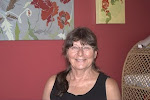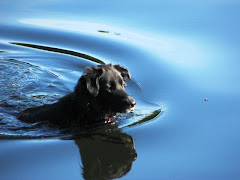One of the things I love about teaching is that teachers are always learning from their students.
This year I have had more adult students than I had last year and they have taught me different lessons than the ones taught by adolescents.
Sybille and Roger have taught me a great deal about a basic Swiss characteristic that is ingrained because there is such a deliberate effort to ensure that children and later adults adopt the idea that consensus is far better than conflict in solving problems It makes sense that a neutral country would be non-confrontational, of course, but Sybille and Roger made me really understand this.
Sybille says that one of the problems with always having to resolve conflicts consensually at home or in business is that meetings run by the Swiss are very very long. Sometimes it is a relief to have a German chair a meeting -- more efficient -- and everyone gets home to dinner on time.
Roger was doing some improv in class the other day, simulating an argument between two men at a market. Very abruptly the smaller man ended the argument by giving in, and giving up his right to the location for his stall. Roger said, "There is a Swiss proverb that says that in a tug-of-war, the intelligent person gives in; the stubborn mule or ass refuses to."
Yoshiko taught me many lessons about healthy longevity, some by example; others directly. The Japanese tend to be longer-lived than people in the west. I realize now after spending a week with the 84 year old Yoshiko that diet and exercise are largely responsible. Yoshiko eats four very small meals a day, and seaweed, fish, fruit and vegetables are her staples. She drinks green tea and stays away from alcohol. Last winter she spent 80 days on the ski hills..
She also leads a stress-free life surrounded by beauty and intellectual stimuli. She is an artist so she is not bored, but she says that her life is not work-filled.
When she and Rowboat Flo discussed their healthy longevity, they talked about physical activity. Flo gardens and used to walk miles. Yoshiko skiis. When they discussed keeping their minds active and alert, both women agreed that we need to exercise our minds as well as our bodies. For Yoshiko that means painting and travel and eating a diet rich in brain foods. Flo uses puzzles of various kinds in the same way, and, although her diet is very different from Yoshiko's, it too is healthy, and much of what she eats she grows herself.
I am reading a superb book on travel called The Art of Travel. It is about why we travel, and how we can enrich our lives through travel. By the end of the book it becomes clear that physically going to a new place is just one way to travel. The real secret to enriching one's life lies in learning to see with new eyes; taking the time to study nature and life in general. Travelers, artists and writers who notice the details bring back new ideas and experiences that they can bring to bear in their everyday lives.
Teaching travelers is just another way of learning things that can make life more interesting, and more fulfilling.
Every day I experience something wonderful and surprising. This week Roger taught me how to make apple fritters and how to design a Swiss roof that will never leak. He also reminded me that Shepherd's Pie is delicious, so i am having that for supper tonight. Perhaps most exciting for me is watching him figuure out some knotty language problem,. When he gets it I see a a light dawn. He has once more allowed me to see how language learning takes place.
Subscribe to:
Post Comments (Atom)




4 comments:
Alain deBotton's book is a gem. Enjoyed it thoroughly a few months ago. He attends. Which makes life, wherever one is, rich in moment. (Is that the word I want?)
Yes ... and I love the way he integrates art, literature. life, nature and travel to reveal how noticing, how understanding, how being attentive to the details creates the kind of appreciation that can make one happy. An erudite man who seems able, like Wordsworth (or your John) to see the molecules and meaning of life in a blade of grass.
I spent one entire summer drawing word pictures of this lake. Another summer (2005)I went out every day (and the occasional night) with my kayak and took the time to possess or eat up this lake. Then I made a book called "Reflections at Pike Lake".
The mirror reflections were part of the lake's beauty and mystery, but I included photographs taken that summer at the lake and wrote my own reflections as poetry.
I know deBotton's assertions are right because I have taken the time to really look, really listen, really take into my being this small lake. his book reminds me to take the time and not try to cram far too much into too few hours.
Pike Lake and You -- "Like THIS!" (hands together)
When you write about an experience, you experience it more fully. Like attempting to draw an object or place -- you really LOOK.
You may also like his book, How Proust Can Change Your Life. Have you read it?
I must say, The Art of Travel did not (for me) say anything new but it's always nice to have one's prejudices confirmed and si agreeable float along on his rich, apposite prose.
The older I get the less likely I am to be startled by philosophical ideas ... and the more likely I am to be reminded of truths I recognize and hold close to me.
I am not sure whether this is because I now read only those books that appeal to my own prejudices ... quite possibly ... after all I have taken 70 years to form those beliefs.
Like you, I love it when those truths are clothed in well chosen words.
Post a Comment